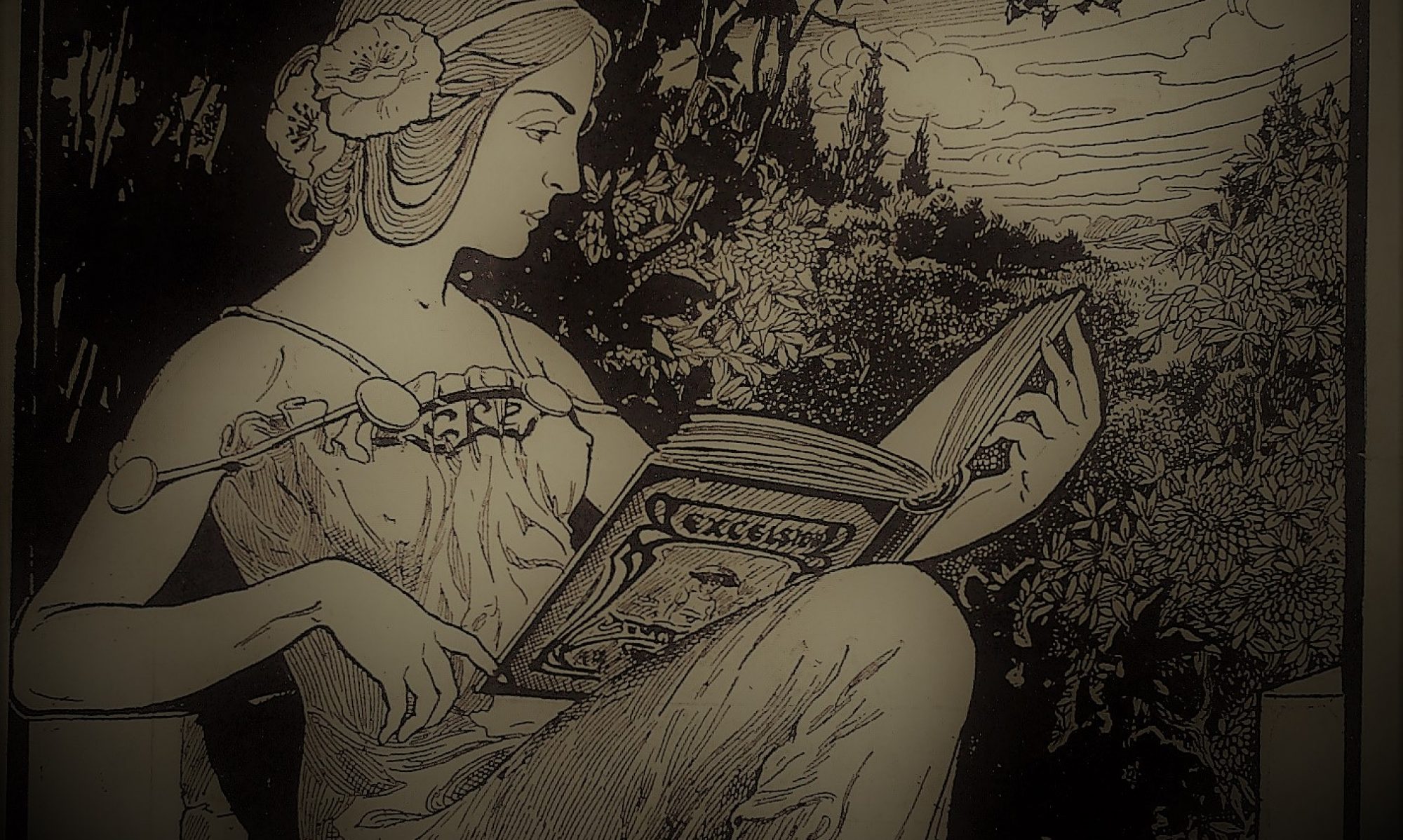The lecturers for this summer school are from the University of Antwerp and the University of the Philippines Diliman.
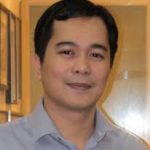 Chito Angeles is an IT-Librarian, an Information Technology Specialist and a Professional Librarian. He earned both his Bachelor’s degree and Master’s degree in Library and Information Science from the University of the Philippines (UP) Diliman. He is currently the University Librarian of UP Diliman and is also a Senior Lecturer at the UP School of Library and Information Studies. He specializes in IT applications in libraries, library automation, integrated library systems, digitization and digital preservation, database design and web development. His most notable contributions in UP include: the pilot implementation of RFID systems in Diliman libraries; the development of various information systems, such as, the UP Integrated library system, Digital Archives @UP DIliman, the Philippine eLibrary portal system, the Index to Philippine Periodicals online, and the Index to Philippine Newspapers online; and the institutionalization of digitization and digital preservation services in the University Library.
Chito Angeles is an IT-Librarian, an Information Technology Specialist and a Professional Librarian. He earned both his Bachelor’s degree and Master’s degree in Library and Information Science from the University of the Philippines (UP) Diliman. He is currently the University Librarian of UP Diliman and is also a Senior Lecturer at the UP School of Library and Information Studies. He specializes in IT applications in libraries, library automation, integrated library systems, digitization and digital preservation, database design and web development. His most notable contributions in UP include: the pilot implementation of RFID systems in Diliman libraries; the development of various information systems, such as, the UP Integrated library system, Digital Archives @UP DIliman, the Philippine eLibrary portal system, the Index to Philippine Periodicals online, and the Index to Philippine Newspapers online; and the institutionalization of digitization and digital preservation services in the University Library.
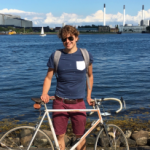 Wout Dillen is the coordinator of the Antwerp division of the DARIAH-VL consortium (part of DARIAH-BE), where he acts as a liaison between DH projects at the University of Antwerp. As part of this function, he is also involved in the development of DARIAH-related pilot projects at the University of Antwerp’s Centre for Manuscript Genetics; works towards a solution for current hosting and sustainability issues; manages the website of the literature department’s Platform for Digital Humanities; and organizes its lecture series (since April 2017). Wout defended his Ph.D. dissertation on ‘Digital Scholarly Editing for the Genetic Orientation’ in 2015 at the University of Antwerp as part of the Creative Undoing and Textual Scholarship (CUTS)’ project, funded by the European Research Council (ERC) and supervised by Dirk Van Hulle. For this project he also developed the online Lexicon of Scholarly Editing that was initiated by his supervisor. In 2016, he held a one-year experienced researcher position at the Univeristy of Borås’ Library and Information Science department as part of DiXiT, a Marie Curie Initial Training Network. He is also the secretary of the European Society for Textual Scholarship.
Wout Dillen is the coordinator of the Antwerp division of the DARIAH-VL consortium (part of DARIAH-BE), where he acts as a liaison between DH projects at the University of Antwerp. As part of this function, he is also involved in the development of DARIAH-related pilot projects at the University of Antwerp’s Centre for Manuscript Genetics; works towards a solution for current hosting and sustainability issues; manages the website of the literature department’s Platform for Digital Humanities; and organizes its lecture series (since April 2017). Wout defended his Ph.D. dissertation on ‘Digital Scholarly Editing for the Genetic Orientation’ in 2015 at the University of Antwerp as part of the Creative Undoing and Textual Scholarship (CUTS)’ project, funded by the European Research Council (ERC) and supervised by Dirk Van Hulle. For this project he also developed the online Lexicon of Scholarly Editing that was initiated by his supervisor. In 2016, he held a one-year experienced researcher position at the Univeristy of Borås’ Library and Information Science department as part of DiXiT, a Marie Curie Initial Training Network. He is also the secretary of the European Society for Textual Scholarship.
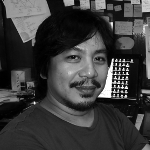 Ramon Guillermo is currently serving as the Faculty Regent of the University of the Philippines (UP) System and is a professor at the Center for International Studies (CIS), UP Diliman. He obtained his PhD in Southeast Asian Studies (Austronesistik) from the University of Hamburg, Germany. He is the author of the novel “Ang Makina ni Mang Turing” (UP Press, 2013) while his most recent co-authored book is “3 Baybayin Studies” (UP Press, 2017). Most of his scholarly work lies in the domain of what has recently been called “digital humanities.” He is the Philippine partner project leader for the VLIRUOS-funded research “Strengthening digital research at the UP system: digitization of rare periodicals and training in digital humanities.”
Ramon Guillermo is currently serving as the Faculty Regent of the University of the Philippines (UP) System and is a professor at the Center for International Studies (CIS), UP Diliman. He obtained his PhD in Southeast Asian Studies (Austronesistik) from the University of Hamburg, Germany. He is the author of the novel “Ang Makina ni Mang Turing” (UP Press, 2013) while his most recent co-authored book is “3 Baybayin Studies” (UP Press, 2017). Most of his scholarly work lies in the domain of what has recently been called “digital humanities.” He is the Philippine partner project leader for the VLIRUOS-funded research “Strengthening digital research at the UP system: digitization of rare periodicals and training in digital humanities.”
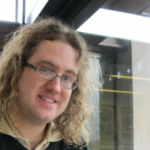 Mike Kestemont is an assistant professor in the Department of Literature at the University of Antwerp in Belgium. He enjoys research in computational text analysis, in particular for historic texts. Much of his work can be situated in the Digital Humanities, an international movement in which scholars from the conventional Humanities (linguistics, literary studies, history, …) explore how digital methods and computation can support, enhance and transform traditional forms of research and teaching. Recent advances in computing technologies have, for instance, made it possible to mine cultural insights from immense text collections via “Distant Reading”. Our era thus has the historic privilege of being to able to witness and stimulate the emergence of exciting new computational research possibilities, across the Humanities at large.
Mike Kestemont is an assistant professor in the Department of Literature at the University of Antwerp in Belgium. He enjoys research in computational text analysis, in particular for historic texts. Much of his work can be situated in the Digital Humanities, an international movement in which scholars from the conventional Humanities (linguistics, literary studies, history, …) explore how digital methods and computation can support, enhance and transform traditional forms of research and teaching. Recent advances in computing technologies have, for instance, made it possible to mine cultural insights from immense text collections via “Distant Reading”. Our era thus has the historic privilege of being to able to witness and stimulate the emergence of exciting new computational research possibilities, across the Humanities at large.
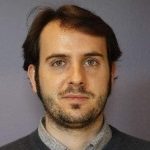 Enrique Manjavacas started as a researcher at the University of Antwerp in October 2015. He graduated in Classical Philology from the Complutense University of Madrid and obtained a Master degree in Linguistics from the Free University of Berlin. He has been mostly interested in finding out how to provide quantitative and computational support for research in different branches of linguistics such as sociolinguistics, corpus linguistics or variational linguistics. In line with his fascination for computational approaches, he has done work on building valuable and inexpensive linguistic resources from the web (compiling web corpora, web scraping, social network mining, etc.) as well as data visualisation. He hopes to bring computational linguistic methods closer to linguistic research and to contribute to bridging the gap between modern technology and the humanities in agreement with the tenets of the Digital Humanities community.
Enrique Manjavacas started as a researcher at the University of Antwerp in October 2015. He graduated in Classical Philology from the Complutense University of Madrid and obtained a Master degree in Linguistics from the Free University of Berlin. He has been mostly interested in finding out how to provide quantitative and computational support for research in different branches of linguistics such as sociolinguistics, corpus linguistics or variational linguistics. In line with his fascination for computational approaches, he has done work on building valuable and inexpensive linguistic resources from the web (compiling web corpora, web scraping, social network mining, etc.) as well as data visualisation. He hopes to bring computational linguistic methods closer to linguistic research and to contribute to bridging the gap between modern technology and the humanities in agreement with the tenets of the Digital Humanities community.
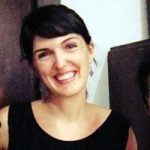 Rocío Ortuño obtained her PhD in Spanish Literature and Cultural Studies from the University of Manchester and holds a Diploma of Professional Expert in Digital Humanities by UNED. She has been a Lecturer at the University of the Philippines at Diliman (2013- 2016), and at different universities in the UK. She has also been a visiting Professor at the University of the Philippines-Baguio (2012), where she developed a digital library for Philippine literature in Spanish in collaboration with late Prof. Dr Maria Elinora Peralta-Imson. She currently works at the Department of Literature of the University of Antwerp, where she directs one research project funded by BOF “Philippines at the crossroads: mapping the international presence in the Philippine literary field in Spanish between 1872 and 1945”, and is the Belgian partner co-project leader of “Strengthening digital research at the UP system: digitization of rare periodicals and training in digital humanities”.
Rocío Ortuño obtained her PhD in Spanish Literature and Cultural Studies from the University of Manchester and holds a Diploma of Professional Expert in Digital Humanities by UNED. She has been a Lecturer at the University of the Philippines at Diliman (2013- 2016), and at different universities in the UK. She has also been a visiting Professor at the University of the Philippines-Baguio (2012), where she developed a digital library for Philippine literature in Spanish in collaboration with late Prof. Dr Maria Elinora Peralta-Imson. She currently works at the Department of Literature of the University of Antwerp, where she directs one research project funded by BOF “Philippines at the crossroads: mapping the international presence in the Philippine literary field in Spanish between 1872 and 1945”, and is the Belgian partner co-project leader of “Strengthening digital research at the UP system: digitization of rare periodicals and training in digital humanities”.
 Anna Sarmiento is an assistant professor at the Department of European Languages of the College of Arts and Letters and an affiliate faculty at the CIS, UP Diliman. She obtained her PhD in Didactics of Language and Literature and her MA in Teaching Spanish as a Foreign Language from the University of Barcelona. Her current research interests include a more computational approach in applied linguistics and literature. She is the Philippine partner co-project leader for the VLIRUOS-funded research “Strengthening digital research at the UP system: digitization of rare periodicals and training in digital humanities.”
Anna Sarmiento is an assistant professor at the Department of European Languages of the College of Arts and Letters and an affiliate faculty at the CIS, UP Diliman. She obtained her PhD in Didactics of Language and Literature and her MA in Teaching Spanish as a Foreign Language from the University of Barcelona. Her current research interests include a more computational approach in applied linguistics and literature. She is the Philippine partner co-project leader for the VLIRUOS-funded research “Strengthening digital research at the UP system: digitization of rare periodicals and training in digital humanities.”
